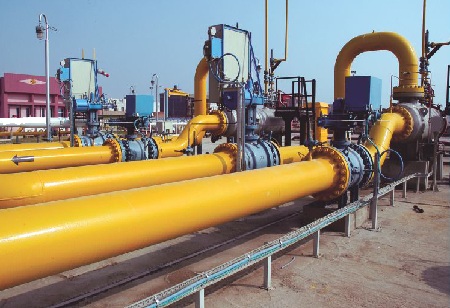India's largest gas firm GAIL (India) is targeting net-zero carbon emission from its operations by 2040, ahead of targets by other state-owned firms, chairman Manoj Jain said at the firm's annual shareholders' meeting. India, the world's fourth biggest emitter of carbon dioxide after China, the US and the EU, has committed to cut its emissions to net zero by 2070. And GAIL's target for 2040 is a step in aiding that.
GAIL "is committed to reduce its carbon footprint by diversifying into the renewable energy sector," Jain said at the firm's annual shareholders' meeting. Becoming net zero, or becoming carbon neutral, means not adding to the amount of greenhouse gases in the atmosphere.
"In line with India's vision to achieve net zero by 2070, GAIL has completed a comprehensive study on science-based net-zero ambition and intends to achieve a 100 per cent reduction in Scope 1 and Scope 2 emissions and a 35 per cent reduction in Scope 3 emissions by 2040". Indian Oil Corporation (IOC) on Thursday announced a Rs 2 lakh crore investment to achieve carbon neutrality in its operations by 2046. Scope 1, 2 and 3 is a
way of categorising the different kinds of carbon emissions a company creates in its own operations, and in its wider value chain. While Scope 1 emissions are direct greenhouse (GHG) emissions that occur from sources that are controlled or owned by an organization (e.g., emissions associated with fuel combustion in boilers, furnaces, vehicles), Scope 2 emissions are indirect GHG emissions associated with the purchase of electricity, steam, heat, or cooling.
Scope 3 emissions are ones that the organisation is indirectly responsible for, such as those of suppliers and customers of its products. Most companies, including IOC, have announced net-zero targets for Scope 1 and 2 emissions only. Jain said GAIL is taking steps to get a foothold in the transformational changes happening in the global energy sector.
The nation's largest transporter and marketer of gas has started mixing hydrogen in natural gas as a step towards introducing the carbon-free energy source in the system, he said. "The hydrogen blended natural gas is being supplied to Aavantika Gas Ltd, a joint venture of GAIL and HPCL, operating a city gas network in Indore," he said. "This project marks the stepping stone of India's journey towards a hydrogen-based and carbon-neutral future."
It "has also embarked upon alternate energies like green hydrogen, renewables and bio-fuels projects which are of national importance and would likely provide a transition to the future," he said. GAIL is setting up a green hydrogen production unit with a capacity of 4.3 tonnes per day at Vijaipur in Madhya Pradesh. It is also setting up a 10 MW ground-mounted solar power project at Vijaipur.
Stating that GAIL has always been committed to the growth of a gas-based economy in India, he said this project will prove to be a significant step in India's march towards achieving a carbon-neutral and self-reliant future. Jain said global events during the previous year have the potential to alter the structural landscape of the energy sector.
